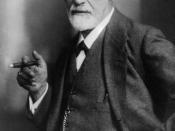The 1920s brought the United States a gilded perspective of the new roles being assumed by women. It is very easy to believe that women were making a lot of social progress and were prospering financially due to the surge of women being hired to fill the jobs of the absentee soldiers, as well as the "Revolution in manners and morals" where young girls acted more glamorous, flamboyant, and "independent". But the truth of the matter is that women were perceived in the same condescending light as they had always been, under the implication that they were inferior, thus obliged to be submissive to wills of their male partners. The women working in the factories were seen as housewives out of place; society had no intention of supporting any of their decisions to continue working after the soldiers returned. The young women that would go out at night with men and drink and smoke, dubbed "flappers", were acting under the ideology of being independent and free of the societal imposed Victorian role of the submissive, homely woman, when in fact they were further encouraging the idea of a woman dependent on a male counterpart.
This is illustrated in the film "Dancing Mothers", where the nightlife activities that Kittens the flapper, the main character, partakes in are completely dependent on whichever male escort she accompanies on a given evening. Essentially, the 1920s were a period of gilding the truth that the United States were being as traditional as ever, and the efforts to revolt against this traditionalism were fruitless.
There were, however, many advancements made that altered the expectations of relationships and marriages that skewed from the traditional Victorian ideals. Sigmund Freud had a great impact on the developing idea of companionate marriages where couples recognized sexuality as a healthy, natural...


